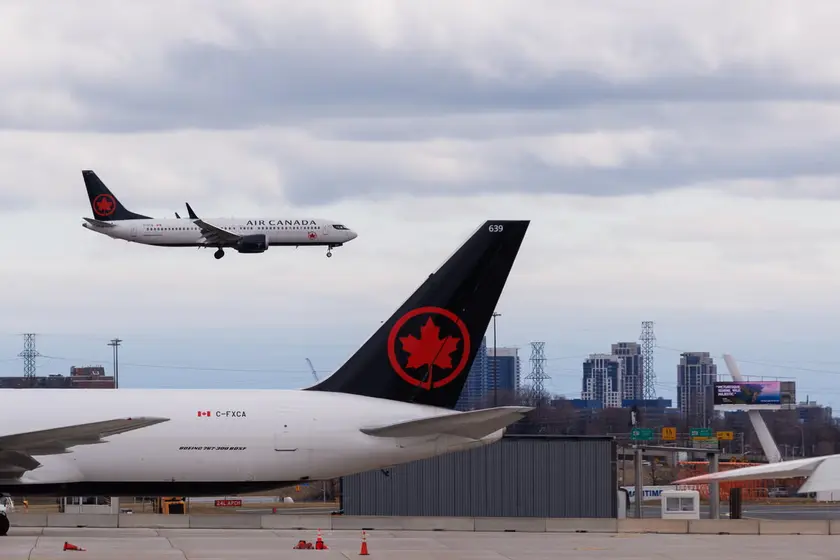T4K3.news
Air Canada delays resumption after strike
Air Canada postpones flight resumption as flight attendants extend their strike despite a government return-to-work order; refunds are available but rebooking may be limited.
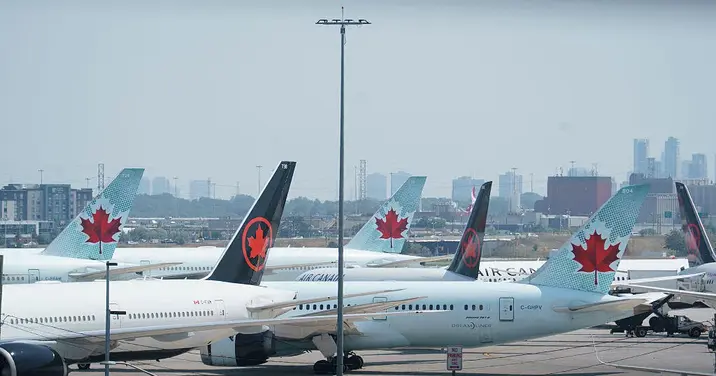
A labor dispute at Air Canada keeps planes grounded as 10,000 flight attendants extend their strike despite a government return to work order, delaying service for thousands of travelers.
Air Canada delays resumption after flight attendants extend strike
Air Canada is delaying plans to resume services after its 10,000 flight attendants continued their strike, despite a government order to return to work by Sunday. The walkout began early Saturday and has disrupted travel for more than 100,000 people during the peak summer season. The Canada Industrial Relations Board had ordered crews back by 2 p.m. local time, but the union says the demonstrations will continue as talks remain at an impasse over pay and hours worked.
Air Canada now says it plans to restart flights on Monday evening, pending any changes on the ground. The shutdown has already affected roughly 130,000 travelers daily and led to hundreds of canceled flights over the weekend. The airline has offered refunds where possible and suggested alternative routes, though it cautions availability may be tight during the travel peak. The dispute, ongoing for about eight months, has seen the union reject government-directed arbitration and seek a negotiated settlement instead. Future talks hinge on wage and overtime compensation, with Air Canada previously proposing a four-year package that would lift total pay by about 38 percent, while union leaders say the first-year raise is not enough to offset inflation.
Key Takeaways
"We invite Air Canada back to the table to negotiate a fair deal"
CUPE statement urging negotiation
"Now is not the time to take risks with the economy"
Patty Hajdu remarks on intervention
"We remain on strike and demand compensation for all hours worked"
CUPE stance on hours and pay
"Air Canada plans to resume flights Monday evening"
Airline’s timeline for service restoration
The standoff shows how labor leverage and government intervention collide in a sector that cannot tolerate long disruption. When a major carrier faces a protracted walkout, the caseload and public expectations push both sides toward a weekend deadline that rarely satisfies either party. The use of a return-to-work order signals a willingness to use state power to shield the economy, but it also risks stoking backlash from workers who see bargaining power eroding.
Looking ahead, the episode could reshape how airlines negotiate with unions in a high-stakes period for travel. For workers, the case tests solidarity and the value of overtime, while for management it tests the cost of wage packages against operational reliability. The broader context, including similar interventions in other sectors, suggests a pattern where governments step in to balance economic need with labor rights, a balance that is often contested in public forums.
Highlights
- Invite Air Canada back to the table to negotiate a fair deal
- Now is not the time to take risks with the economy
- We remain on strike and demand compensation for all hours worked
- This is a test of who bears the cost of a travel meltdown
Political backlash and travel disruption risk
The government used a return-to-work order in a tense labor dispute, raising questions about how much state power should influence bargaining in essential services. Critics warn it may undermine union leverage, while supporters say it protects the economy. Prolonged disruption could hurt travelers and investors and intensify political debate.
The outcome will shape how travelers plan and how workers press their claims in the months ahead.
Enjoyed this? Let your friends know!
Related News
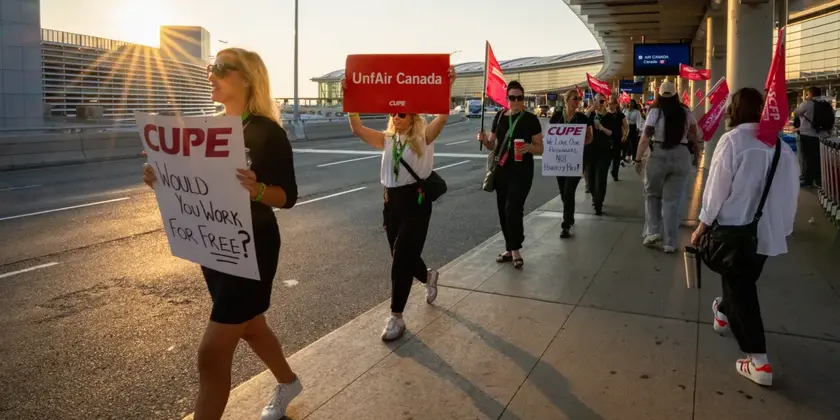
Air Canada arbitration ordered after strike
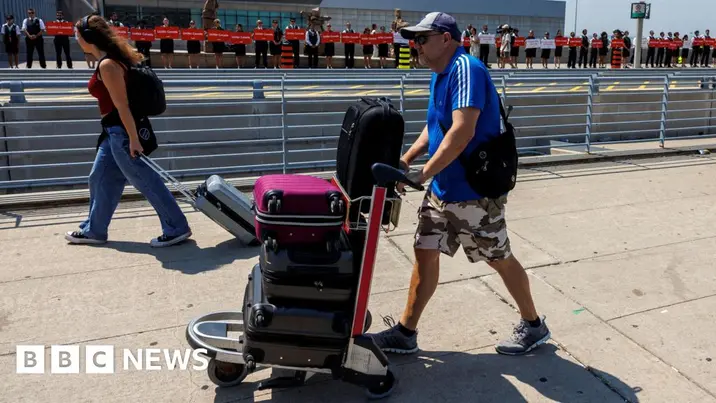
Air Canada Flights Grounded After Strike
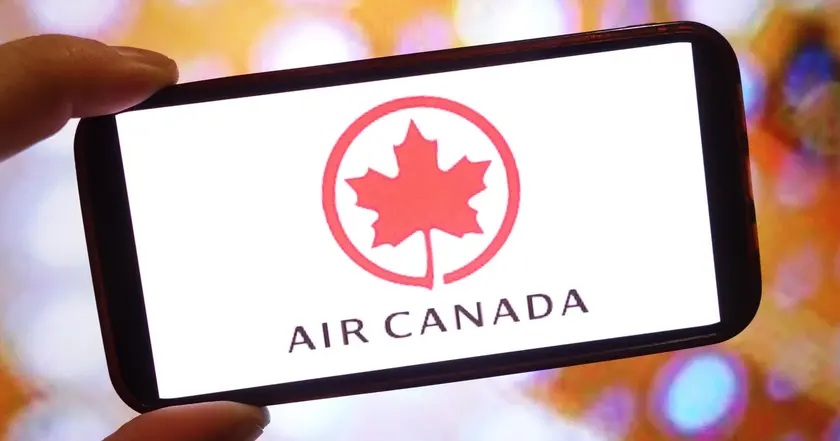
Air Canada flight cancellations begin ahead of potential strike
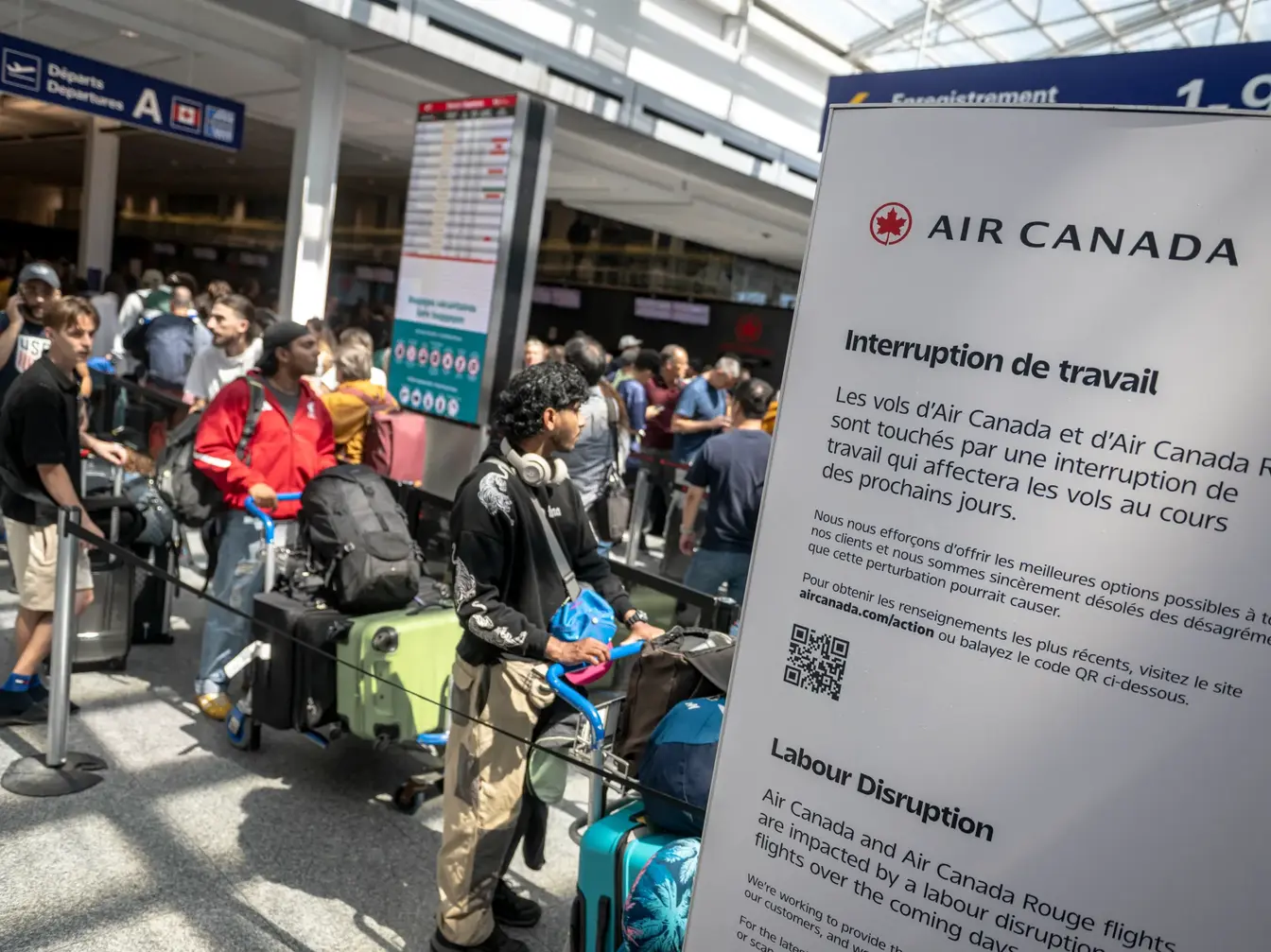
Air Canada cabin staff strike grounds hundreds of flights
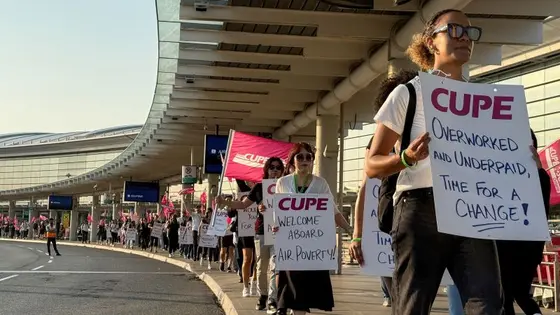
Air Canada strike continues after government order

Air Canada restart halted as union defies order
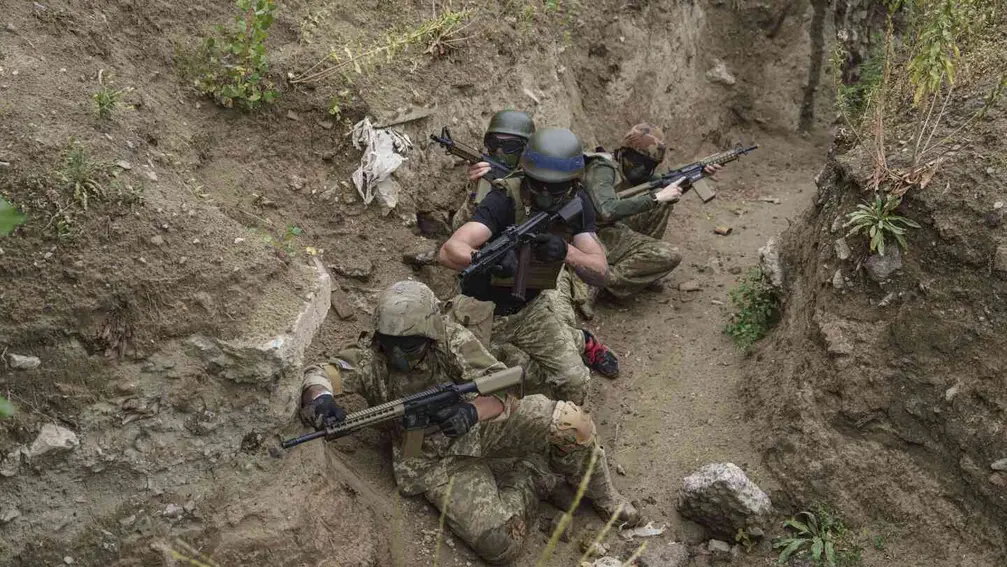
Ukraine increases arms production
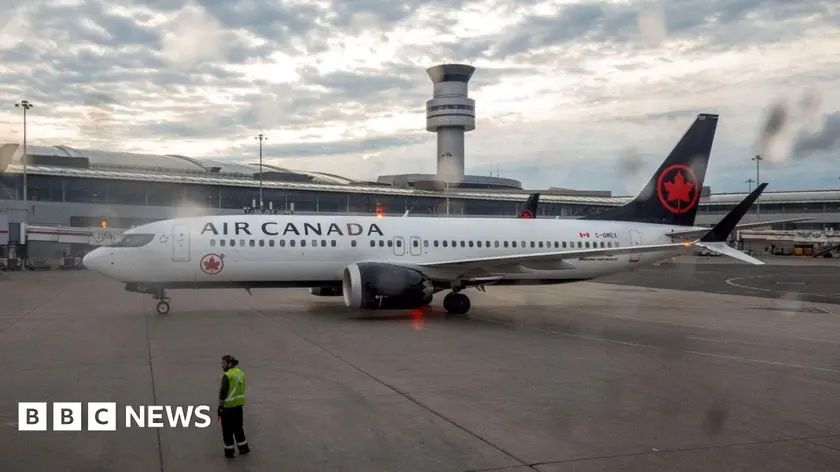
Air Canada strike threatens peak travel disruptions
